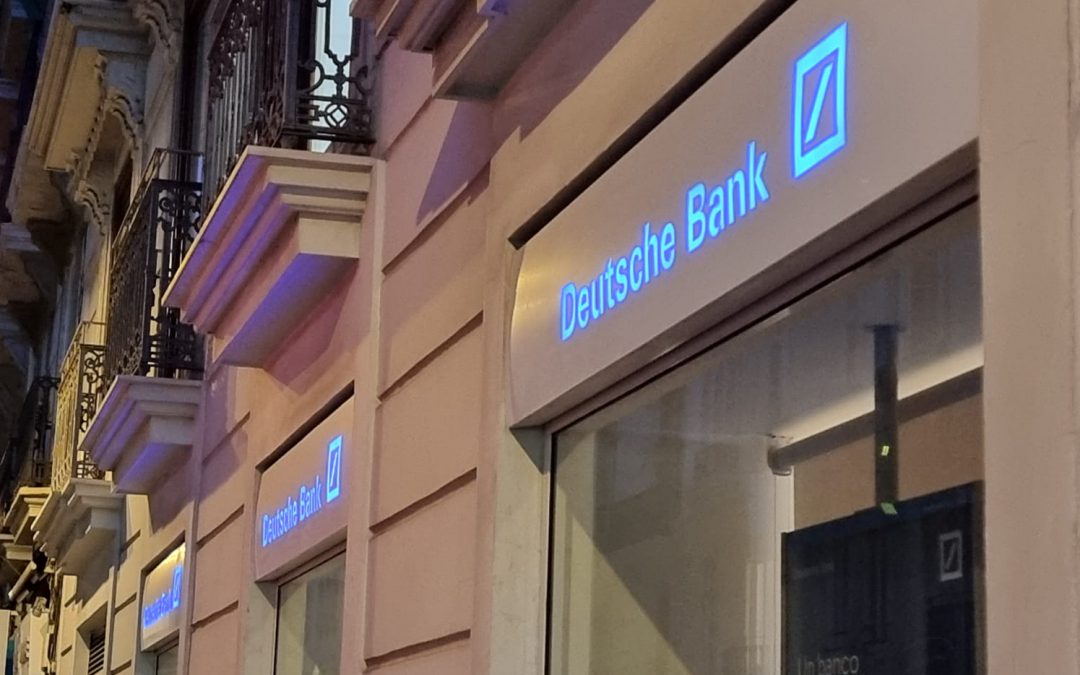La Razón asks us about the claims filed against Deutsche Bank. For your interest, we reproduce in full the content of the news that can be consulted directly at this link.
Dozens of Spanish companies, waiting for Deutsche Bank to decide on the derivatives that almost ruined them
The German bank investigates whether its agents unduly caused millionaire losses to their clients with products that do not comply with the MiFID II protection regulations
DIARIO LA RAZÓN Edition of March 05, 2021
XAVIER DE ANTONIO MADRID.
As already happened in the late 90s of the last century and especially in the first decade of the 2000s, Deustche Bank remains in the eye of the hurricane for the use of complex, speculative and volatile financial products so high that the companies that decide to bet on them are involved in a "snowball" - as financial analysts call it - that causes them very serious financial problems, with consequences as decisive as their bankruptcy.
This was the case that led important Mexican companies –especially Cemex, Alfa, Bachoco and especially Comercial Mexicana– and other countries –such as Banco Monte di Paschi– to add multimillion-dollar losses with catastrophic consequences, which led to international institutions intervene to pass new and demanding legislation to prevent these cases from recurring in the future.
Despite these legislative changes for prevention and control, Deutsche Bank, as did other entities, have maintained the commercialization of these derivative products –High risk and maximum financial complexity– as exchange rate risk hedges, supposedly more advantageous than traditional and more expensive exchange rate insurance.
And it has been in Spain where the banking firm has exploded a second international front after receiving several complaints from clients. For this reason, the largest German bank decided to open an internal investigation to determine whether some of its investment departments - through the treasury desks of the City of London and Spain - had improperly managed, offered and sold highly sophisticated financial products to clients who lacked the knowledge to understand and bear the risk they faced. This would mean that Investor control and protection measures required by community and national regulations have been violated, which precisely activated protocols to prevent the indiscriminate commercialization of this type of products after the Great Financial Crisis.
This investigation, called by the German entity itself as Project Teal as revealed by the Financial Times, began when several companies –mainly Spanish– began to denounce having been victims of this type of operations with derivative products by Deutsche Bank, whose agents would have traded until 2019 without the proper information, causing serious losses to these companies, after ignoring the control and prevention measures that the entity should have implemented, as required by the regulations.
These claims and the internal investigation initiated by the entity have triggered the intervention of supervisors, both by the Spanish National Securities Market Commission (CNMV) and its German counterpart, BaFin, in addition to the European Central Bank itself ( BCE) would have already started its investigation protocols to try to clarify whether the German bank traded these currency derivative products without meeting minimum transparency standards to dozens of Spanish exporting and importing companies.
A derivative is a financial product whose value depends on the value of another asset. The difficulty and inability of clients to assess the risk of these products is that the initial investment is small compared to the exposure to the underlying obtained, so that the results can multiply in a negative sense. Some of these derivatives could offer small limited benefits or be deactivated in beneficial scenarios for the client, but if they incorporate accumulators, their results can generate very high losses for the client.
According to financial sources consulted, this is what would have happened in the Spanish case, in which The client, without knowing it, was the one who assumed the risk of the speculative operation and faced the worst consequences when the price of currencies was unfavorable. In this way, contrary to what the client seeks, he becomes the entity's insurer, assuming products that sometimes incorporate hidden costs, imbalances in their structure and, therefore, greater probability of losses.
For Julio Ribelles, a lawyer who has successfully represented clients who reported this type of derivative products of various financial entities, clients, regardless of their volume or turnover, “are not able to calculate the scope of these products or to control or understand in depth its operation and risk. The bank abuses the asymmetry of knowledge and customer trust, which always has the chance to lose».
In the past, the Provincial Court of Madrid, in a Judgment of June 30, 2014, condemned Deutsche Bank precisely for the commercialization of these products as "zero cost", when they did incorporate unreported costs. Their restructurings also incorporated losses in new products. This practice, in addition to higher costs, meant the generation of greater risks and loss probabilities.
The regulations of the financial markets oblige the advisor to inform the client, be transparent, protect him and act in his best benefit. «This type of product can only be sold to specialized clients with sufficient solvency and the entities in their interest to place them, since they are very profitable for them, can reach incorrectly or improperly classifying as professionals clients who were not professionals or who, being so by volume, did not have sufficient knowledge, giving them access to this type of products». Normally, companies do not seek to speculate with their business, nor assume the risks to which they were subjected, so they “are subject to improper advice that promotes Pyrrhic profits, in exchange for unlimited risks and losses, as an opportunity for improvement. or investment while hedging their exchange rate risk ”, argues Ribelles.
The regulations to which Ribelles refers are the MiFID II directive, which entered into force on January 3, 2018, and the MiFIR and Priips Regulations, which regulate the operation of Investment Services Companies (ESI) and regulated markets; the limitations and controls of the management of positions in derivatives; and other information rules on costs, conduct and investor protection to be followed by ESIs.
Deutsche Bank is in the last phase of its investigation. The judicial and administrative actions that the companies may take against them will depend on its conclusions.


